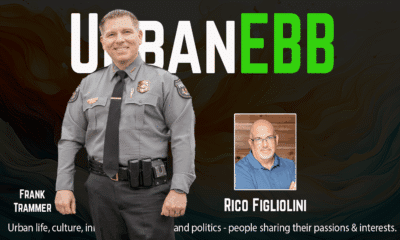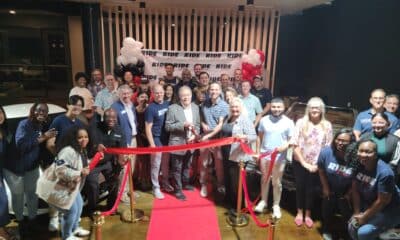Community
Stephen Chininis- Local Hero, Part of Five Stories to Brighten Our Spirits
Published
5 years agoon
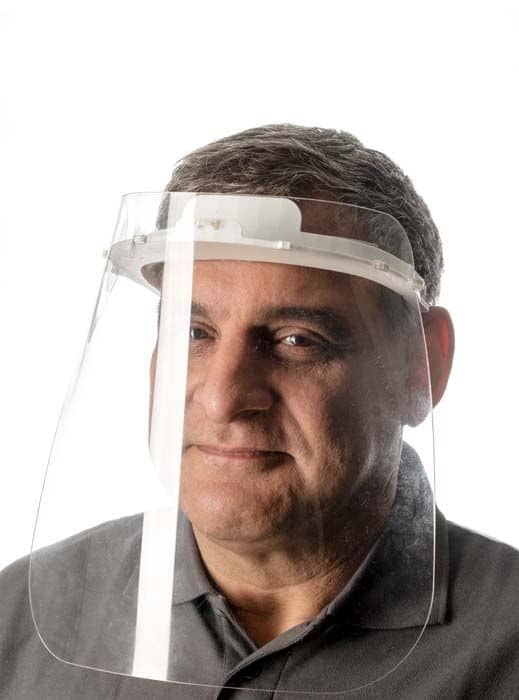
The Bright Side of Lockdown in Peachtree Corners
We can all relate to the surreal feeling brought on by the coronavirus as we struggled with being caught in this bizarre new world that was difficult to believe yet impossible to ignore. We couldn’t help but feel shocked as it unfolded — it was unprecedented — although there had been a dreadful buzz in the air heading straight for us from miles away.
As our nation is sieged with controversy, climbing death rates, trepidation and uncertainty, I wanted to find some uplifting, local COVID-19 stories that would serve to brighten our spirits. This is part 1 of 5 stories to be posted.




Stephen Chininis — Local Hero
Industrial Designer and Inventor at Chininis Product Development Group — Chininis Designs, Georgia Tech educator, Curiosity Lab mentor and Peachtree Corners resident Stephen Chininis wondered what he could do to help during the crisis. “We all got the sudden shock that the world was changing. I suppose if you’re a poet, you write poems about it. I’m not a poet. I make things. I’m an inventor,” he said.
Behind Every Great Man…
In early March, his wife, former Assistant Principal of Norcross High School, Maria Chininis, suggested he make face shields when she realized her colleagues were in desperately short supply. Mrs. Chininis currently works with a sports medicine group at Northside Hospital.
Equipped with a 3D printer and a laser cutter, her husband got to work in the garage, creating a model to be vetted by the infectious disease staff at Northside. A few modifications later and Chininis was ready to go, well before most. Some were producing one-time-use face shields, but Chininis had specifically received requests for shields that could be cleaned daily and reused.
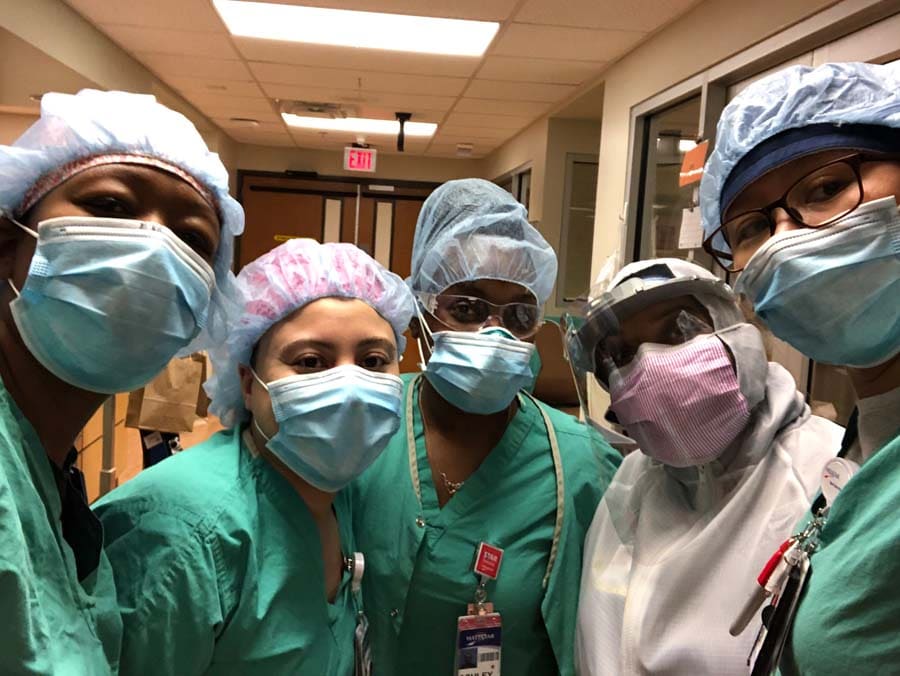
Left, Inventor and Industrial Designer- Stephen Chininis Top right, Stephen Chininis and his wife Maria Middle right, 3D printer Bottom right, Stephen in the work space where he created 3D printed PPE to put in the hands of U.S. hospital and medical staff when they needed it most.
Photos by George Hunter
The Power of 3D Printers
“The companies who produce face shields couldn’t meet the immediate demand. They were ramping up production the same time we were. We beat them; the 3D printers of the world beat them, we got… [face shields] into the ICUs. It’s just a get ‘er done attitude,” Chininis stated.
Regarding his problem-solving approach to life Chininis said, “I’ve always had that attitude; it came from my parents and my upbringing. I think that’s something we need more of. I’m really glad to see my students acting that way. They’re asking how they can help. It’s very infectious. Everybody wants to be a part of making things better.”
He provided over 300 face shields to hospitals all over the U.S. “3D printing has some weaknesses but the strength is, if there’s a problem and you need to solve it, you need a prototype, I can design something, print it overnight, and the next day, I can have the answer,” Chininis said of the low-run production solution he made use of so ingeniously.
“What’s cool is you save the files of all these different things you make, and you can reproduce them again whenever necessary,” Chininis beamed.
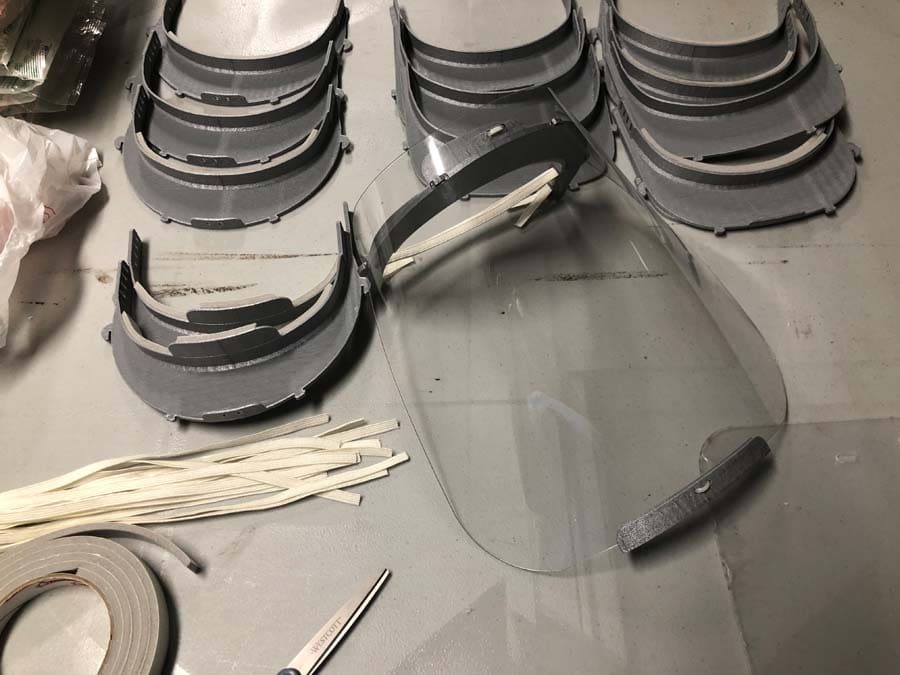
Trial and Error
An injection mold is a better way to produce face shields, but it’s a much more expensive endeavor. The mold alone could cost $30,000. It requires special equipment and machines, so the tooling price is prohibitive if you’re only looking to produce a few hundred of them.
With a long-spanning career of 30-plus patents and licenses for over 100 inventions under his belt, Chininis found himself Googling and talking to doctors, trying to find out what kind of plastic other Personal Protective Equipment (PPE) products were made of so he could use that same grade for his shields.
“It wasn’t as smooth as it sounds,” he recounted, and told of misadventures with industrial plastic companies that would suddenly cancel orders due to COVID-19.
He modified his designs several times to be able to continue making the visors with whatever plastic he could find, often with variations in thickness. The downside: “Sometimes the plastic was heavy, so it wasn’t as comfortable to wear, but better that than not having a visor,” Chininis offered.
An initial model made of acrylic crazed after sitting overnight, forming tiny cracks all over the surface of the shield. Two of his face shields melted when left in direct sunlight for too long but they were returned and easily replaced.
“3D printed plastic is susceptible to high heat. At 150 degrees it will start to bend and melt,” Chininis explained.
Then it was a matter of finding someone who stocked the right plastic in the thickness needed. “It’s all very tedious. Thankfully, my wife helped me,” he noted.
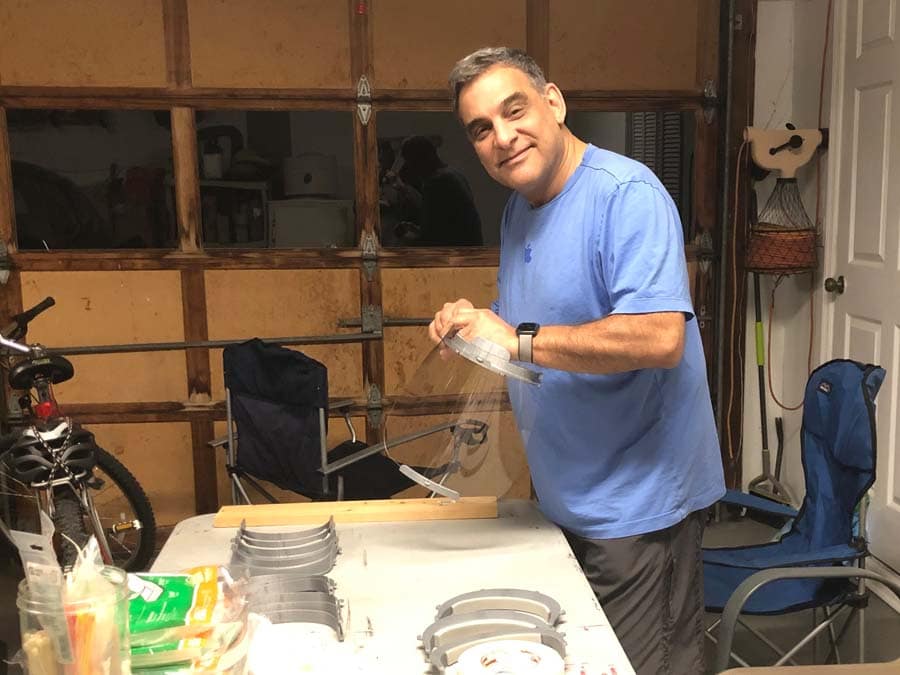
The Cost of 3D Printed PPE
Materials for one medical grade shield run about $10, and the two-hour time frame needed to print it, $50. Yet Chininis offered his products for free to hospital staff. Some recipients offered to help defray the cost of materials for the production of subsequent shields.
Ratted-Out by the Neighbors
“I’d like to point out how lucky I feel to live in Peachtree Corners,” added Chininis, a resident since 1986. When neighbors saw him toiling in the garage in response to the needs of medical staff, the news soon reached CBS who rushed to cover the story in March.
The design that got him recognition was a sturdy yet comfortable mask, made of high-quality plastic that was resistant to chemicals and could easily be washed and reused for several months.
“Everybody wanted one from San Francisco, Louisiana, Atlanta, to Chicago and New York,” he said. His Instagram and Facebook posts resulted in requests pouring in.
When a Community Pulls Together
During the busiest time, he turned to Curiosity Lab at Peachtree Corners for an extra printer to ramp up production. Chininis had helped set up the 3D printers there when it was still Prototype Prime, and he has been instrumental in the printers’ maintenance ever since.
He also enlisted the help of a former student in Marietta who could make a batch of 10 masks per week to help fulfill the orders.
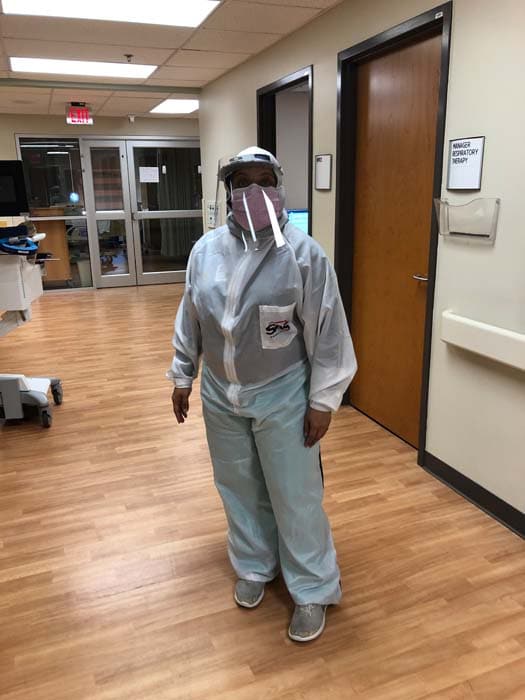
Face Shields of the Future
The demand from hospitals started to taper off in early May. It has shifted from PPE for hospital staff use to mask for use by everybody else. Chininis explained, “We’re starting to see a second wave of PPE coming along, not designed for the ICU but for other people. We never really thought about this. How do we protect everybody?”
Chininis is now producing made-to-order shields: “Tell me what you need, I’ll make it.” People don’t want to take medical grade visor shields away from the ICU, but they do want something to make visiting their parents safer. He’s created a simpler design that can be fastened to a baseball cap.
Chininis meets these challenges with enthusiasm; it’s part of why he loves design so much. Effective design is the result of knowledge, and he has a passion for learning about each new need.
“I try to anticipate what may happen. It’s hard because there’s a lot of conflicting information,” he said.
“People are getting restless. It’s not safe yet and it won’t be for a good while. I’m inclined to listen to doctors and medical people. We did have a great effect on COVID-19 already, we did flatten the curve. I don’t think relaxing [Stay at Home Orders] to a great extent is going to be helpful. It’s going to come back. There are going to be hot spots. The question is how big and where will they be, in our backyard or someone else’s?”
We all Need to get Back to Work — Safely
Chininis was working with dentist Emily Chen, DDS, MA Prosthodontist, the day of our interview, custom designing a visor that would allow for the dental loupes to fit underneath with a headlight affixed to the top. “She’s going to use it over the weekend and let me know on Monday what we should change,” he explained.
He’s also gotten a request from a turkey factory in Minnesota that has asked for face shields that they can attach to their hardhats.
A Humble Hero
When I thanked him for everything that he and his wife have done to make things a little better during this frightening time, Chininis replied: “Honestly, it’s nothing. You do what you do. If you’re a doctor or a nurse, you go to the hospital and you help there. If you drive trucks, then you help with the food supply.”
“I’m really proud of the folks I know who have not been whiney in the face of this crisis. They’ve taken on a ‘We can figure this out’ mindset.”
His unpretentiousness had me on the Coronacoaster of emotions. Eyes welling with tears, I needed him to know that his ingenuity and generosity are everything, especially to those who have loved ones on the front lines.
At this point a blubbering mess, I managed to choke out, “Most of us feel helpless — like there’s nothing we can do.” To which he replied, “But that’s not true. By writing an article, you’re doing something. Right? It’s just a matter of everyone figuring out what they’re good at.” That’s when I would’ve hugged him if I could, but alas, distanced Zoom interviews are the new normal.
To learn more about our local hero, a man you want on your side when the chips are down, visit ChininisDesign.com.
Photos by Photographer George Hunter
Related
Patrizia hails from Toronto, Canada where she earned an Honors B.A. in French and Italian studies at York University, and a B.Ed. at the University of Toronto. This trilingual former French teacher has called Georgia home since 1998. She and her family have enjoyed living, working and playing in Peachtree Corners since 2013.

Community
Peachtree Corners Festival Awards Debbie Mason Drama Scholarship for 2025
Published
1 week agoon
June 2, 2025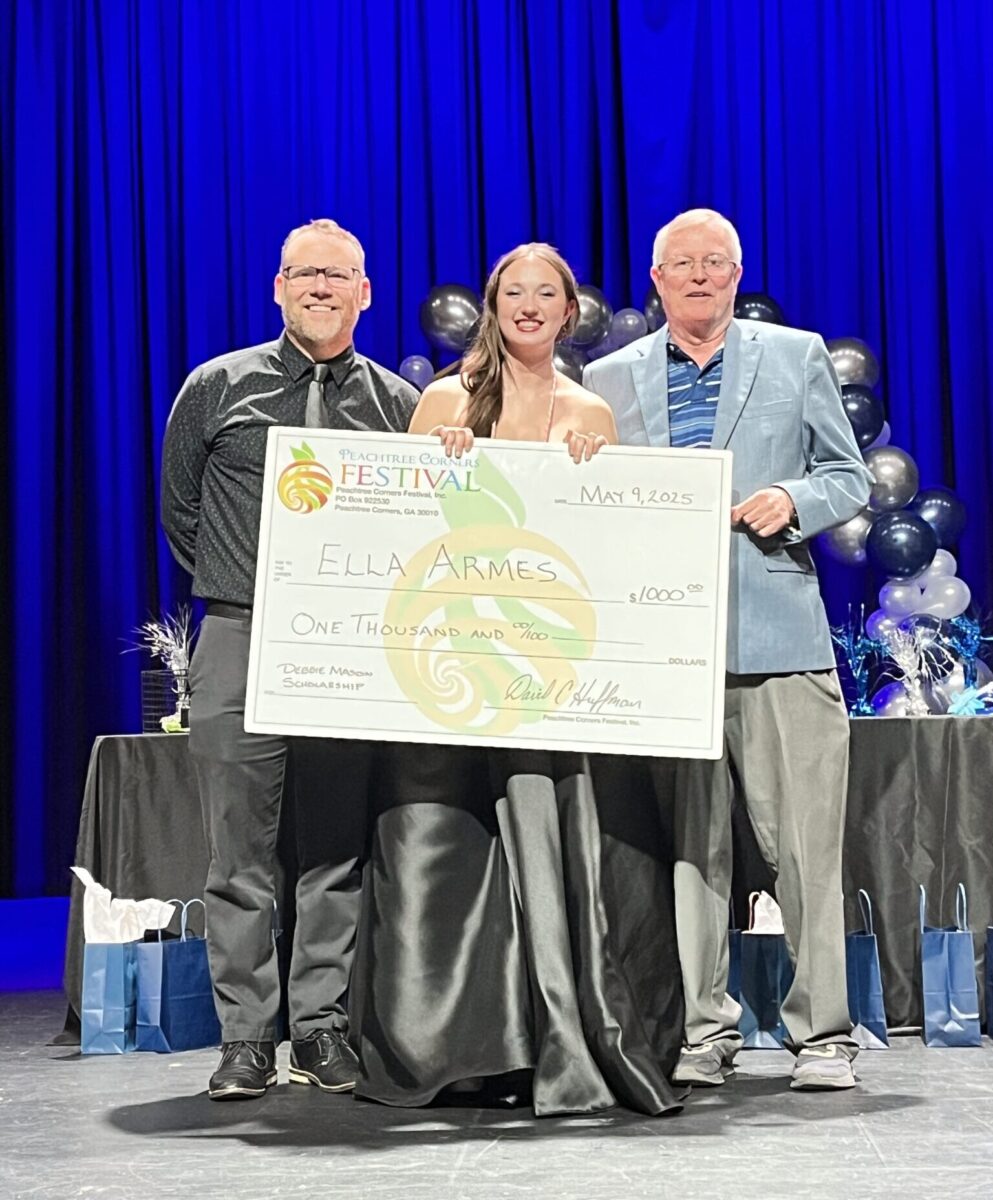
On May 9, the Peachtree Corners Festival awarded the Debbie Mason Memorial Scholarship for Drama to an outstanding Norcross High School drama senior. The recipient was Elizabeth “Ella” Armes, a student who has been involved in the Norcross High School drama department for four years and was most recently the primary stage manager directing the high school’s performances.
According to Terry Gabbard, director of theater at Norcross High School, Ella “was vital to the success of our program. She is an incredible young lady who will be continuing her studies in media and the arts in college.”
In fact, Ella plans to continue her education and work in theater and communications at Kennesaw State University starting this fall.
This marks the third year that the Peachtree Corners Festival has awarded the drama scholarship in the name of the late Peachtree Corners Festival co-founder, Debbie Mason.
In addition to being the first “First Lady” of the city of Peachtree Corners, Debbie and her family were long-time supporters of the drama program at Norcross High School. After her passing in 2023, the Peachtree Corners Festival established the Debbie Mason Memorial Scholarship for Drama as an appropriate way to honor her legacy.
About the Peachtree Corners Festival
The Peachtree Corners Festival is a non-profit, 501(c)(3) volunteer organization dedicated to bringing a safe, wholesome and family-friendly festival to the city of Peachtree Corners each year.
The organization’s goal is to foster community pride and civic involvement, not just through the weekend-long festival, but by giving back and supporting education and beautification initiatives within the city and recognizing deserving members of the community.
This year’s Peachtree Corners Festival will take place on the Town Green, September 20–21.
For more information, visit peachtreecornersfestival.com.
Related
Community
The PCBA Awards $500 to Light Up The Corners at After-Hours Event
Published
2 weeks agoon
May 28, 2025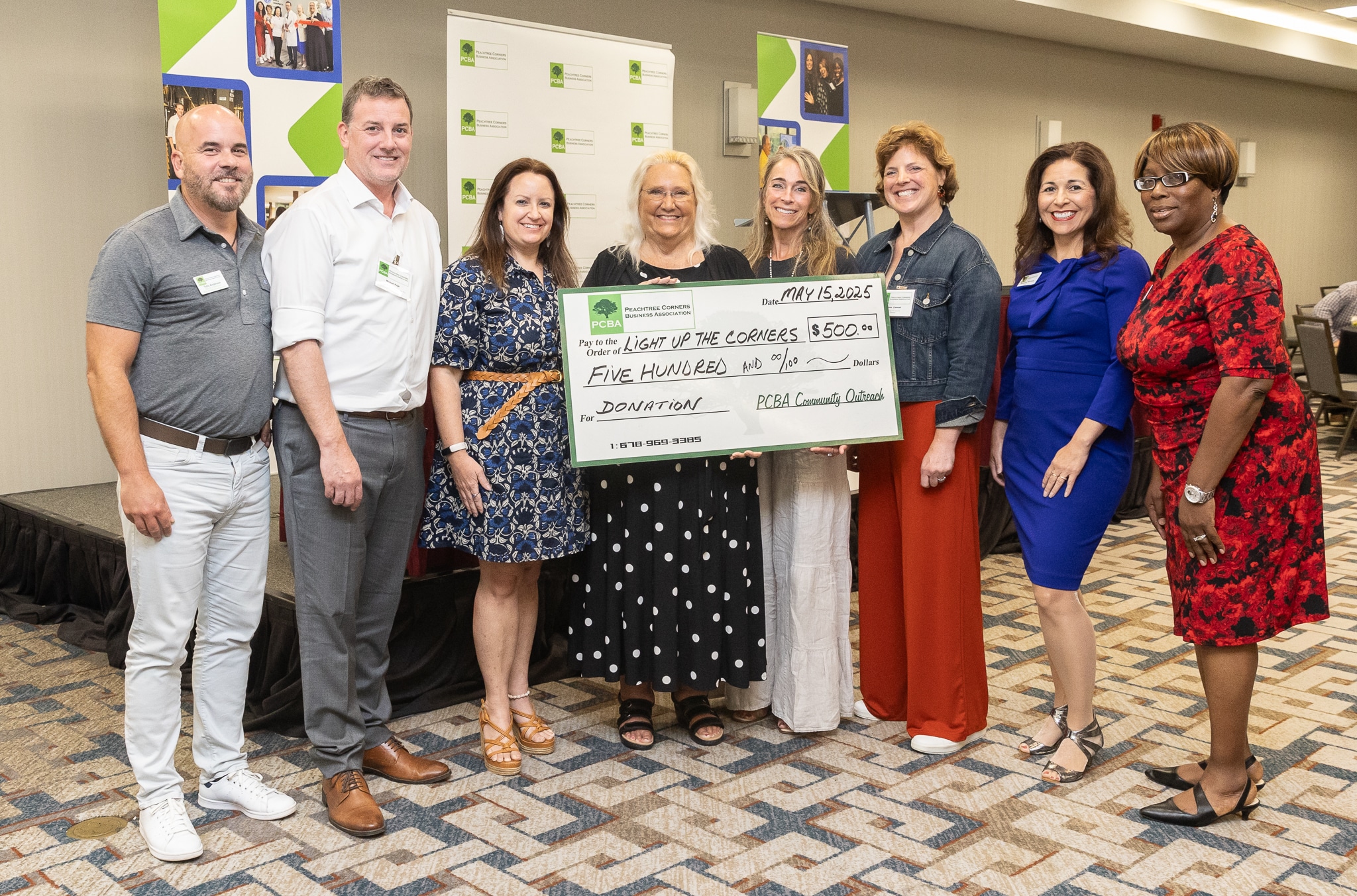
The Peachtree Corners Business Association (PCBA) awarded a check for $500 to Light Up the Corners at their May 2025 Business After Hours event.
Light Up the Corners, a 501 (c)(3) nonprofit, organizes the annual Glow Run and Twilight Trot — a nighttime, community celebration that’s equal parts race, fun run, party and fundraiser.
This year’s event is scheduled for Saturday, August 16 at The Forum in Peachtree Corners. The 1K Twilight Trot will start at 8 p.m., and the four-mile Glow Run will begin at 8:30 p.m. After the runners have crossed the finish line, a fun, post-race party will follow.
All proceeds from the Light Up the Corners event go to benefit less fortunate children and families in the community by giving them the chance to participate in life-enhancing programs and activities at the Fowler YMCA.
A history of charitable donations
PCBA’s donation to Light Up the Corners will help the organization meet its goal of assisting struggling families through their Why It Matters campaign. It’s the latest in a series of donations that PCBA has made over the years through their community outreach program.
“We are so proud that the PCBA has awarded 20 scholarships to outstanding future business leaders and donated in excess of $173,500 into our metro Atlanta community over the last 13 years,” said Lisa Proctor, PCBA board president.
Funds for PCBA’s community outreach program are raised throughout the year from PCBA membership, sponsorships and Tailgates and Touchdowns, an annual charity event they hold each August. Donations and scholarships are awarded at their Business After Hours events so that their members have the opportunity to learn more about the community organizations.
About Peachtree Corners Business Association
The Peachtree Corners Business Association is a business membership organization that focuses on innovative approaches, programs, shared resources, community outreach and opportunities for member businesses and professionals to connect, develop, grow and prosper.
The PCBA is made up of businesses of all sizes and types that want to expand their reach and grow their business within Peachtree Corners and the greater metro Atlanta area.
For more information call 678-969-3385, email membership@peachtreecornersba.com or visit peachtreecornersba.com.
Related
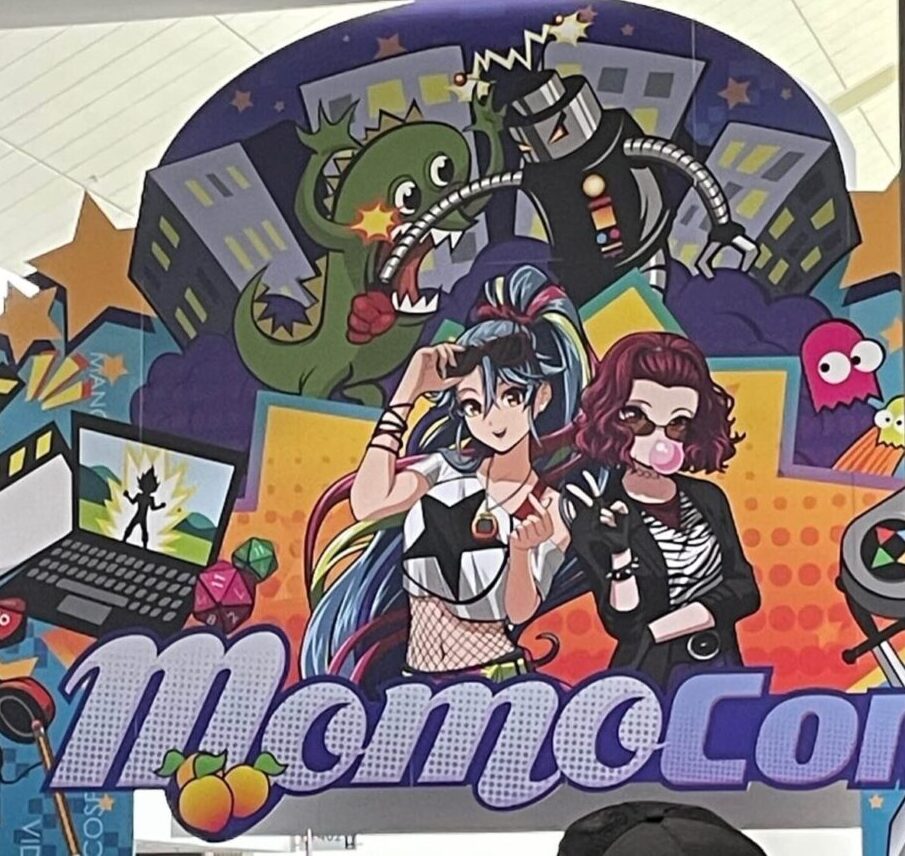
Annual multi-genre convention celebrating Japanese anime, American animation, comics and gaming sets new record with 59,222 attendees
— Article updated May 29, 2025
Atlanta welcomed nearly 60,000 fans of cosplay, comics, gaming, anime and music over the four-day Memorial Day weekend — all meeting up at the Georgia World Congress Center to celebrate MomoCon 2025 and its 20th year in the city.
One of the fastest growing, all-ages conventions in the country, this year’s numbers topped the 56,000 guests that attended in 2024, and was estimated by the Atlanta Convention & Visitors Bureau to have a $42.2 million impact on the metro area.
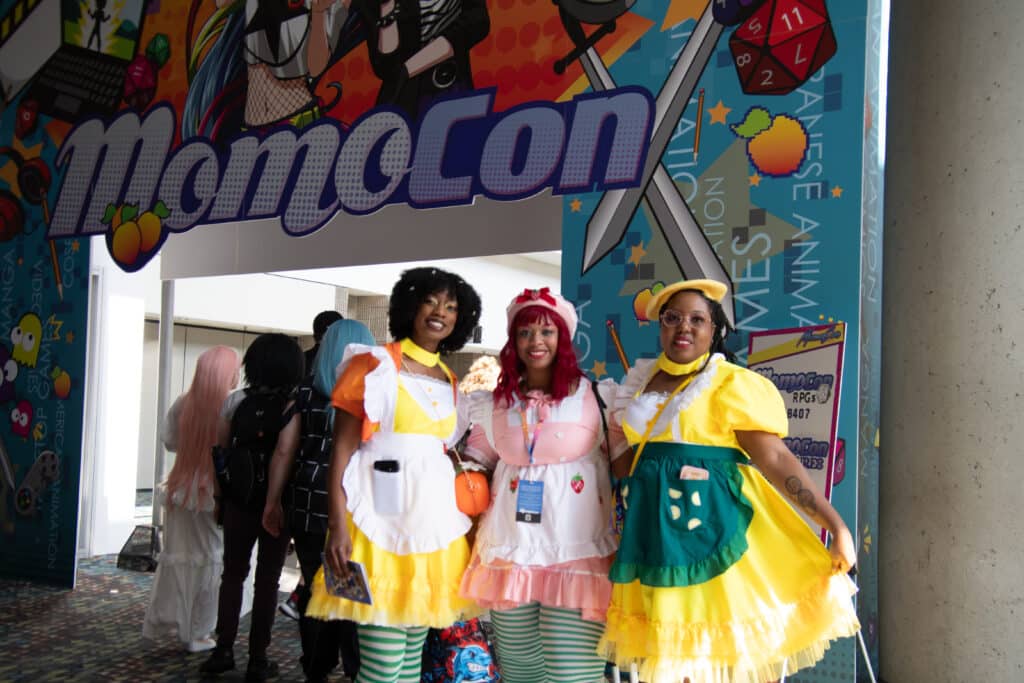
Equally important, the buzzing enthusiasm and pure joy of the weekend, from both attendees and featured guests, was unmatched. Everyone seemed to be having an incredible time. And plans are already in the works for an even more impressive — and expanded — MomoCon experience in 2026.
Organizers say they are expanding into both Hall A and Hall B next year, increasing the total space to a massive 1,045,178 square feet for exhibits and gaming. The team is already hard at work planning amazing new guests and activities for MomoCon’s 21st year.
Registration for next year’s event is already open, with early-bird discounts for fans who want to lock their passes in early.
Giving back to the community
In addition to the money brought into the city and to the convention itself, MomoCon chooses a charity each year in which to support with donations. Funds are raised through sales of specialty merchandise and custom events that have donation elements built in.

The 2025 official charity was the Johnson STEM Activity Center. MomoCon raised more than $5,000 for the center and contributed an additional $7,500 in matching funds, bringing the total donation to $12,500. MomoCon organizers also worked with 11 Atlanta-area, youth-serving nonprofits to give back by bringing more than 900 kids in need to the convention.
Nonprofits receiving tickets this year included Scouting America, Horizons Atlanta, ReImagine ATL, the New Media Education Foundation of Georgia, Purpose Possible, Lekotek, Focus, Boys & Girls Clubs of Metro Atlanta, Big Brothers Big Sisters of Atlanta, Wellroot Family Services and the YMCA.
Fan-favorite comic book artists
Comic book artists (and original members of the former Atlanta-based Gaijin Studios), Cully Hamner and Brian Stelfreeze made their first appearances at MomoCon this year, invited to attend and show off their work in the Artist Alley.
Fans lined up to meet them, along with fellow award-winning artist and longtime friend, Wade von Grawbadger, to get photos, autographs and artwork and spend a few minutes chatting with the guys.
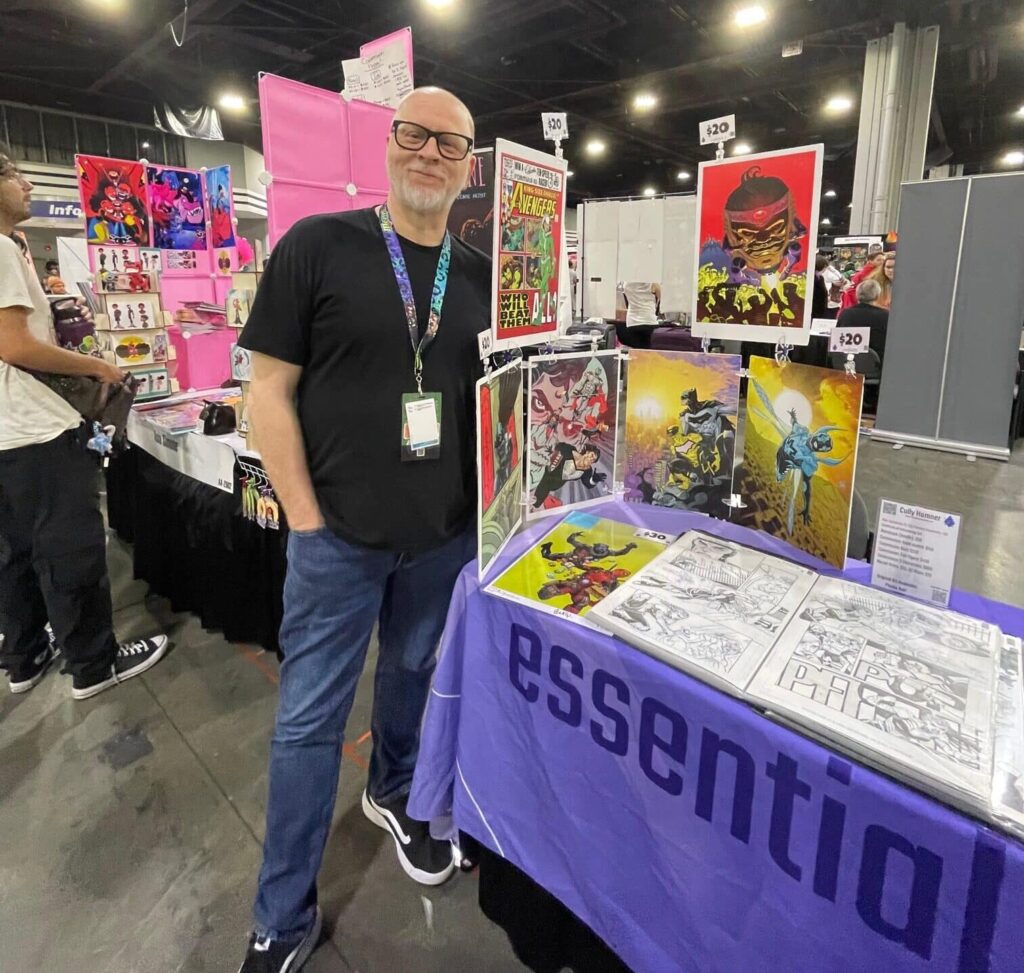
Hamner talked briefly about an upcoming project, “Ruby Actual” that he’s doing with Greg Rucka. “Not sure when it will come out,” he said, “But we’re hoping first quarter 2026.”
In the meantime, comic fans can continue to enjoy his previous work — the acclaimed, creator-owned RED (which was adapted into two films), the current Blue Beetle (also adapted to film) and all of the other work he’s done for DC, Marvel and other publishers over the last 30 years.
They can also look forward to his return to MomoCon in the future if schedules work out.
“This has been a lot of fun,” Hamner said on Sunday, the last day of the convention. “I’d love to come back if they invite me again.”
Stelfreeze agreed. “I enjoyed [MomoCon],” he said. “I really liked seeing the younger audience.”
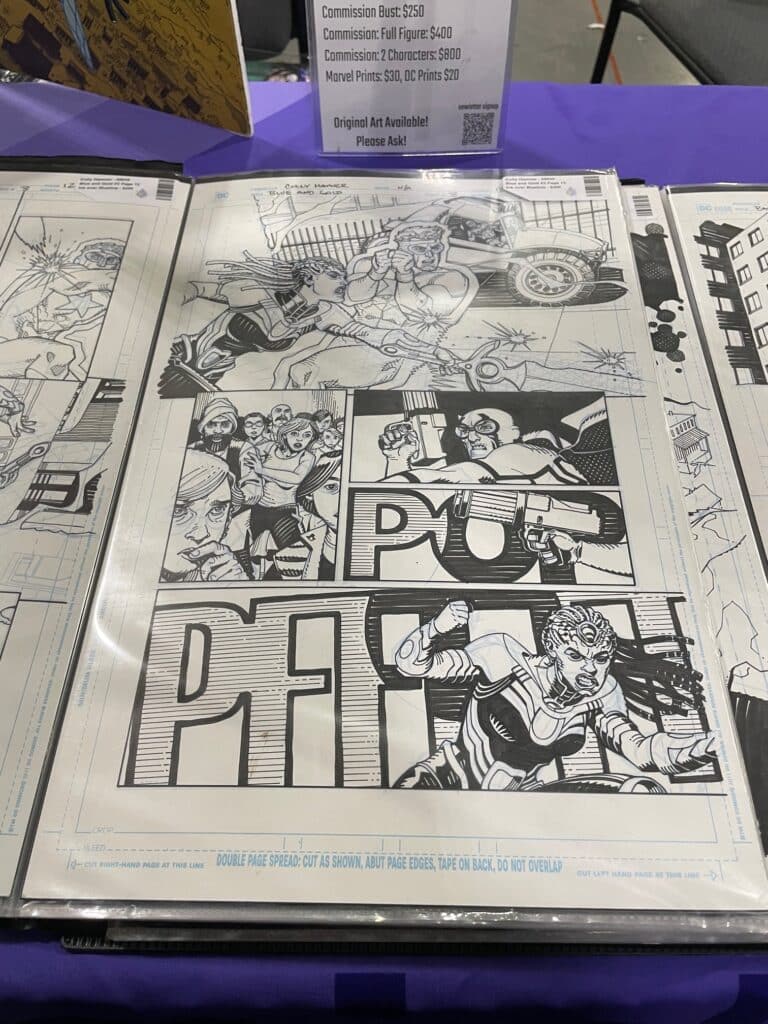
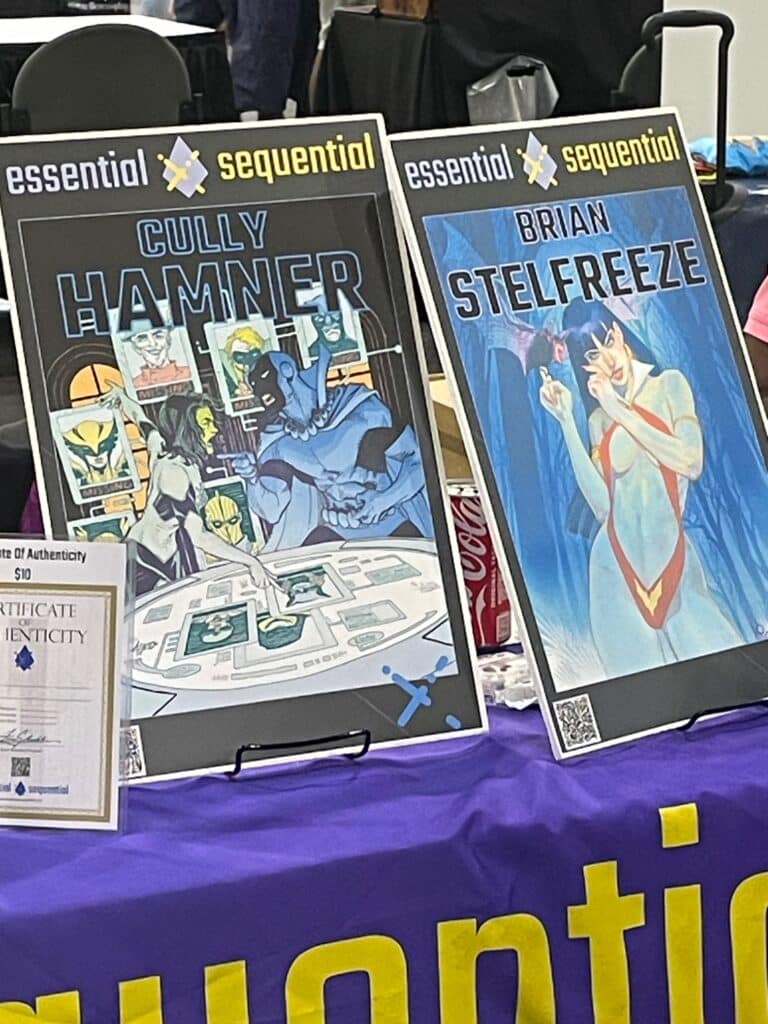
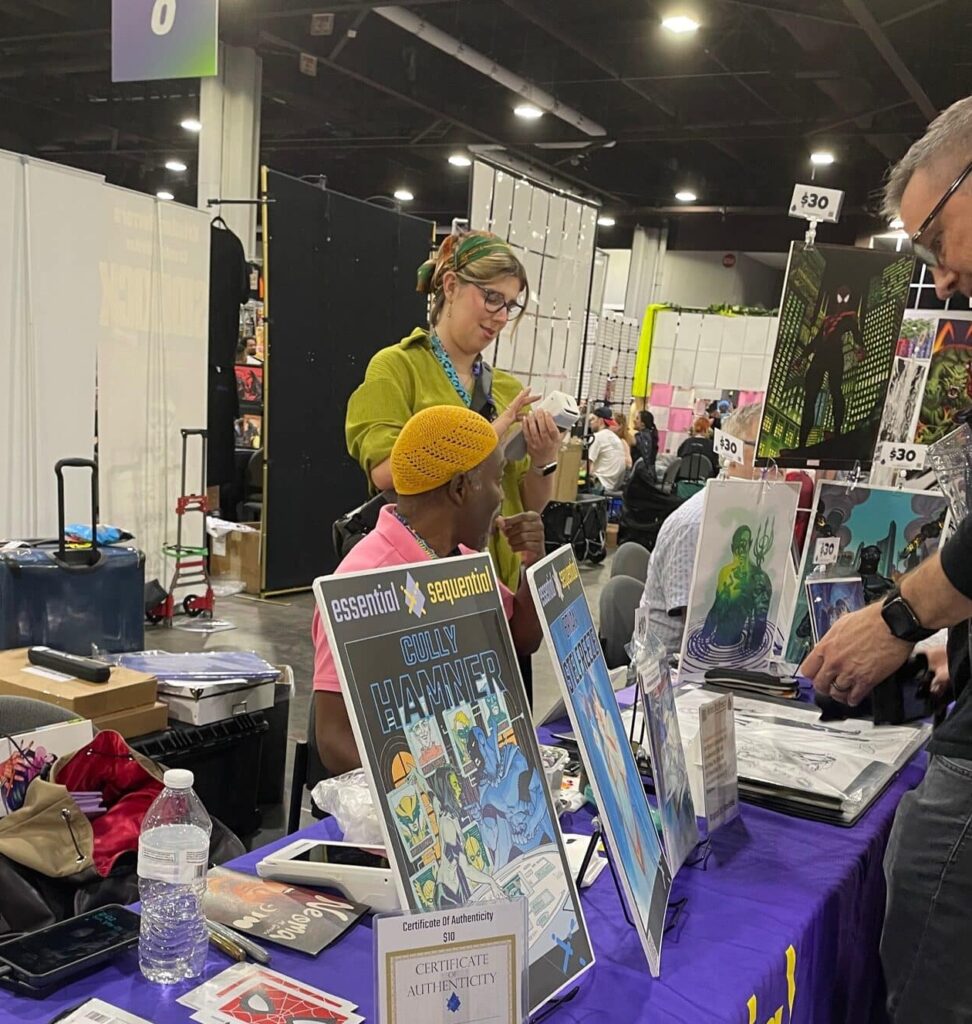
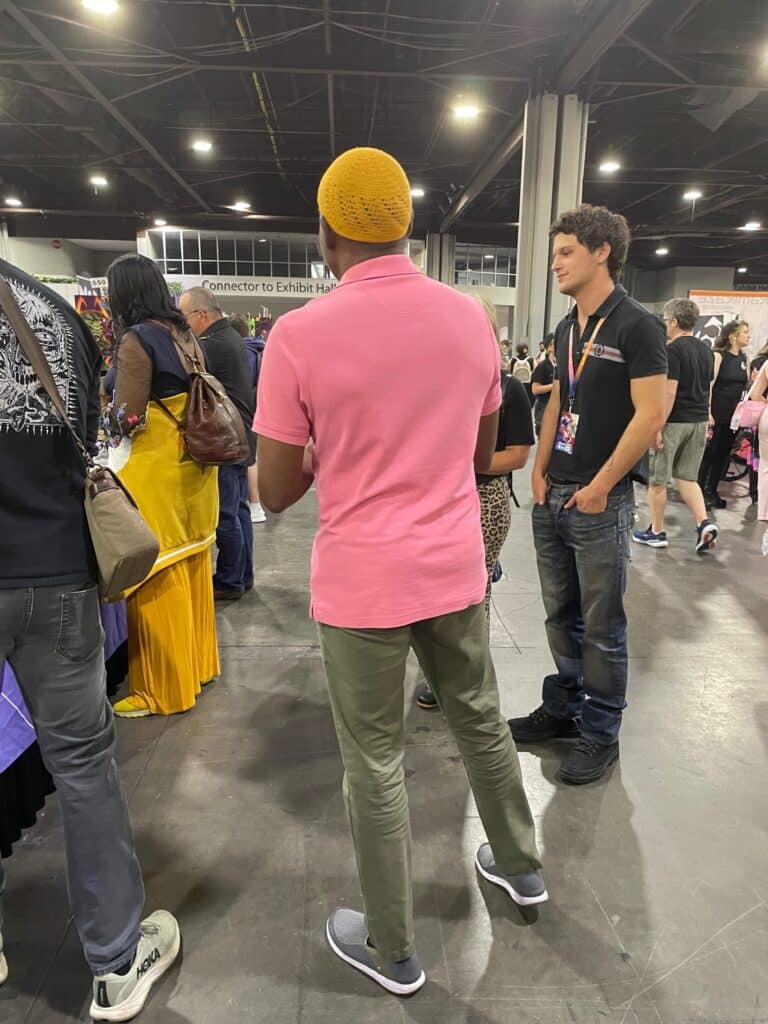
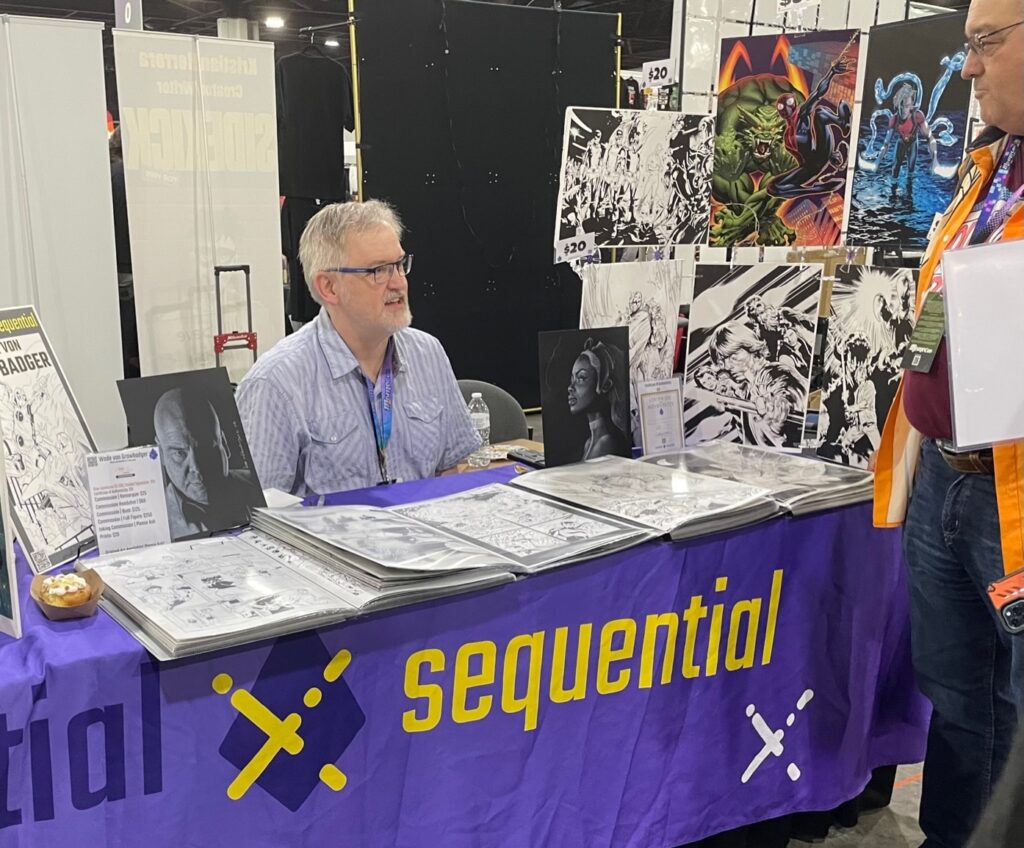
That definitely seemed true on Sunday, as the crowds had thinned out some and Stelfreeze had more time to hang out and talk with people who stopped by the Essential Sequential booth. With some fans, he spent ten minutes or more discussing art, comics and other topics, and even came out from behind the table at times to meet people and say hi to old friends.
Featured guests
Other featured guests also drew long lines of fans who were eager to meet their favorite creators.
Darryl McDaniels (from RunDMC and now a comic book and children’s book author), Greg Burnham (Norcross-based comic book writer known for his indie comic hits), Reed Shannon and Mick Wingert (voice actors and stars of Netflix’s “Arcane”), Ryō Horikawa (Japanese voice of Vegeta in “Dragon Ball Z”), veteran voice actor and producer, Chris Sabat, and online personalities such as Damien Haas were just a few of the standouts.
In fact, as the convention was winding down on Sunday afternoon, Haas’ fan line was still so long, the crowd filled multiple rows of the cordoned-off autograph area, both inside and outside of his designated line.
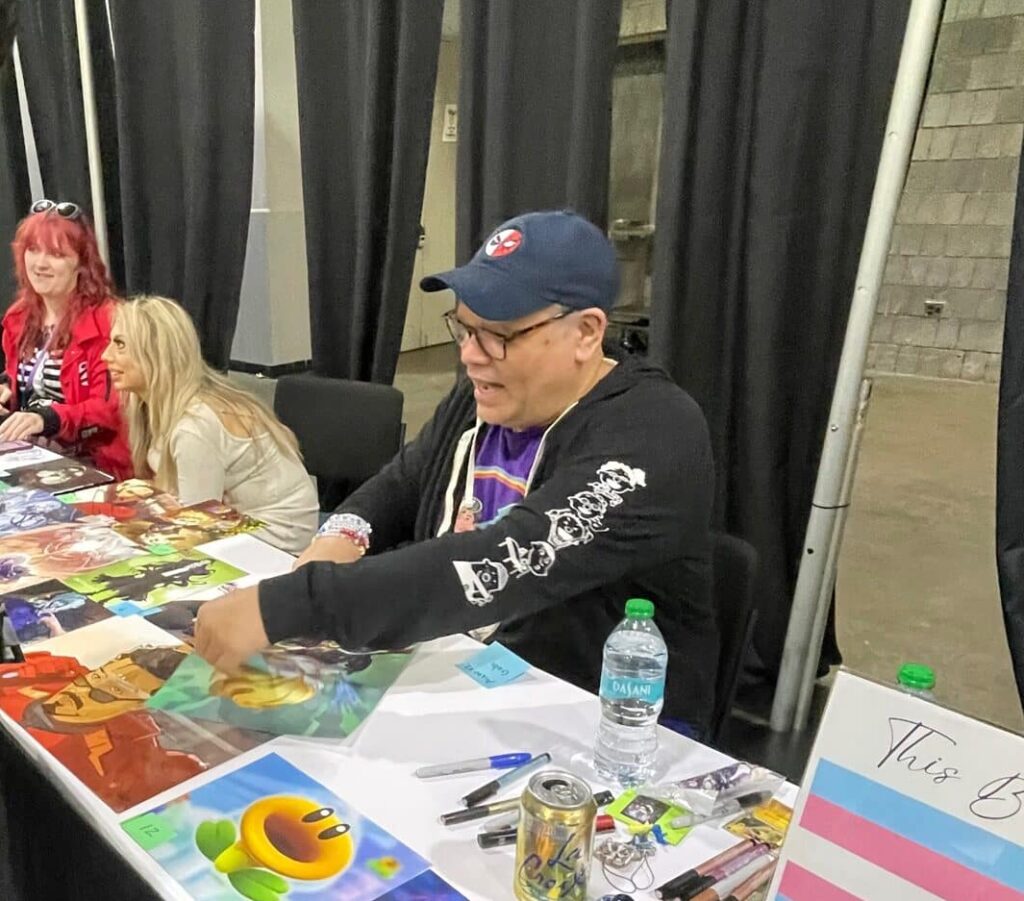
A full list of 2025 celebrity guests can be found here.
New for 2025
While most of the fun features of MomoCon 2025 were returning favorites — Artist Alley, Exhibitor’s Hall, panels, movie screenings and the cosplay showcase —convention organizers kept things fresh with a new theme (‘90s Retro) and a few new highlights, including a skating rink, an expanded online gaming area and the return of the“Bring Your Own Computer” space.
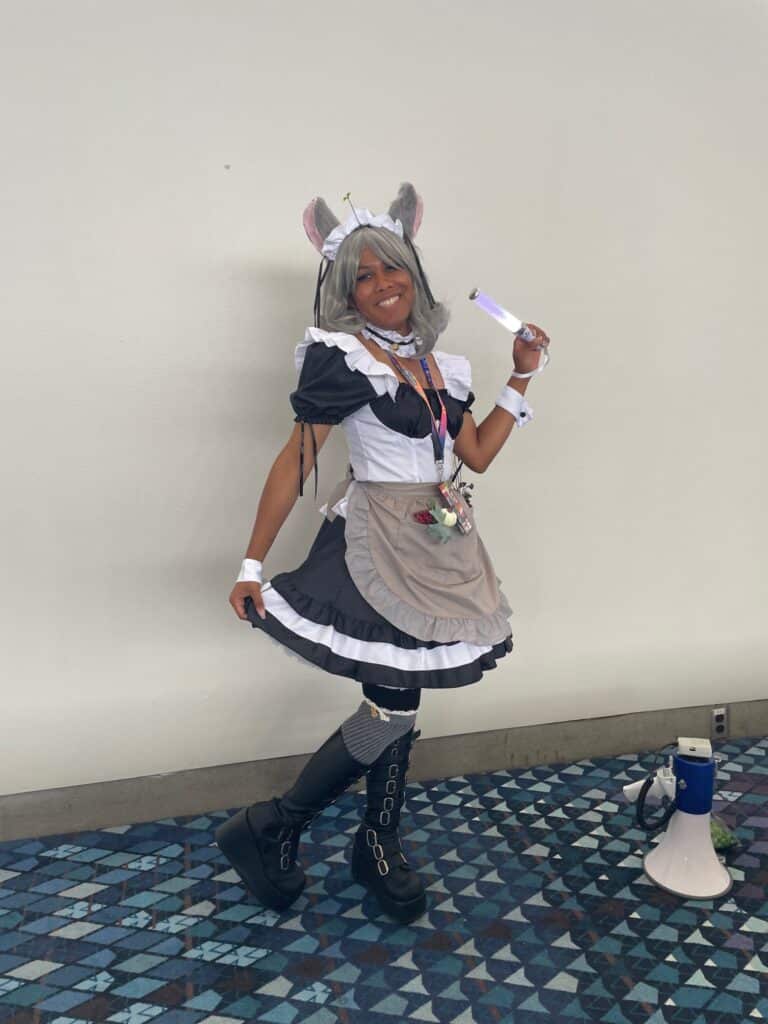
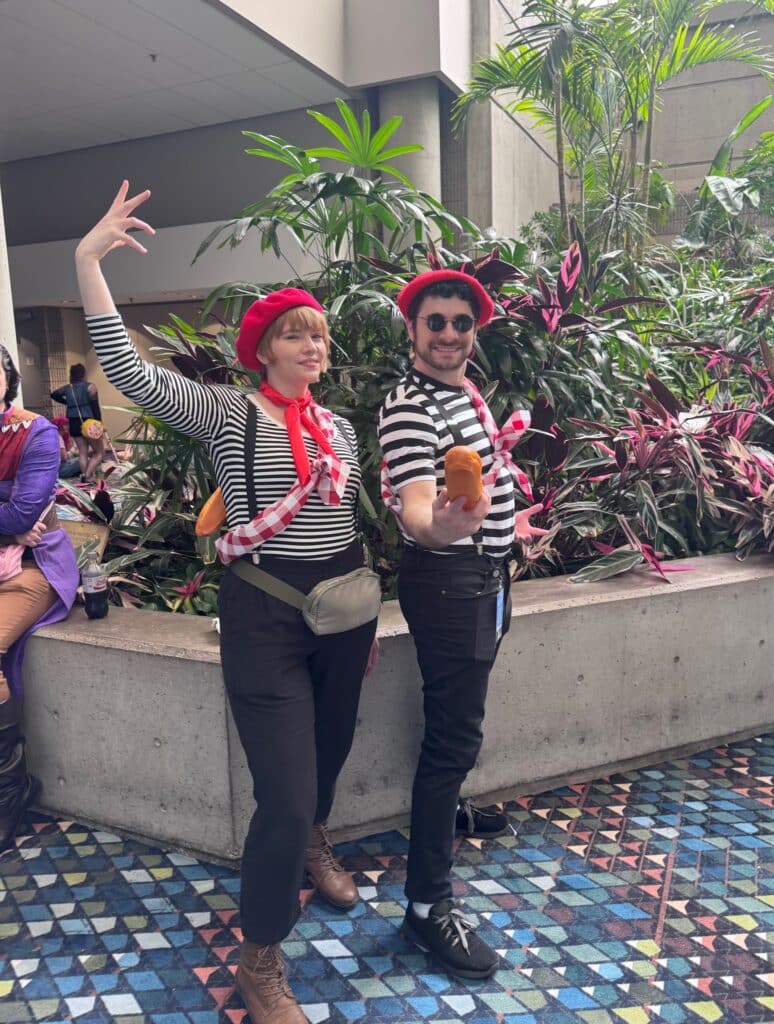
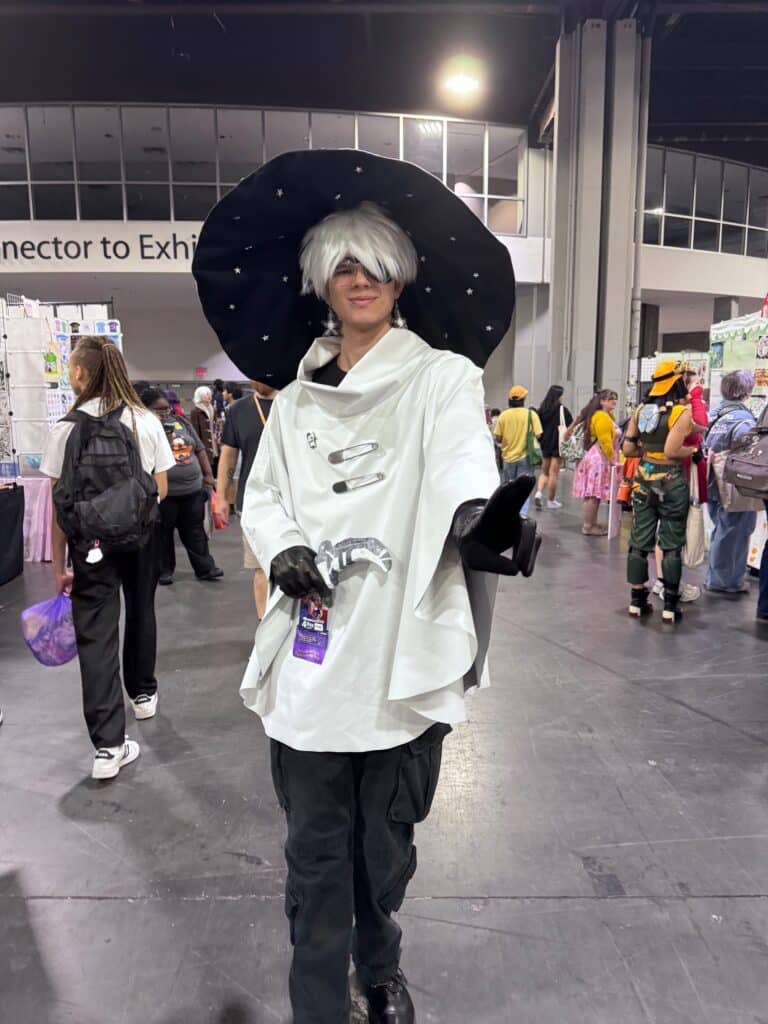
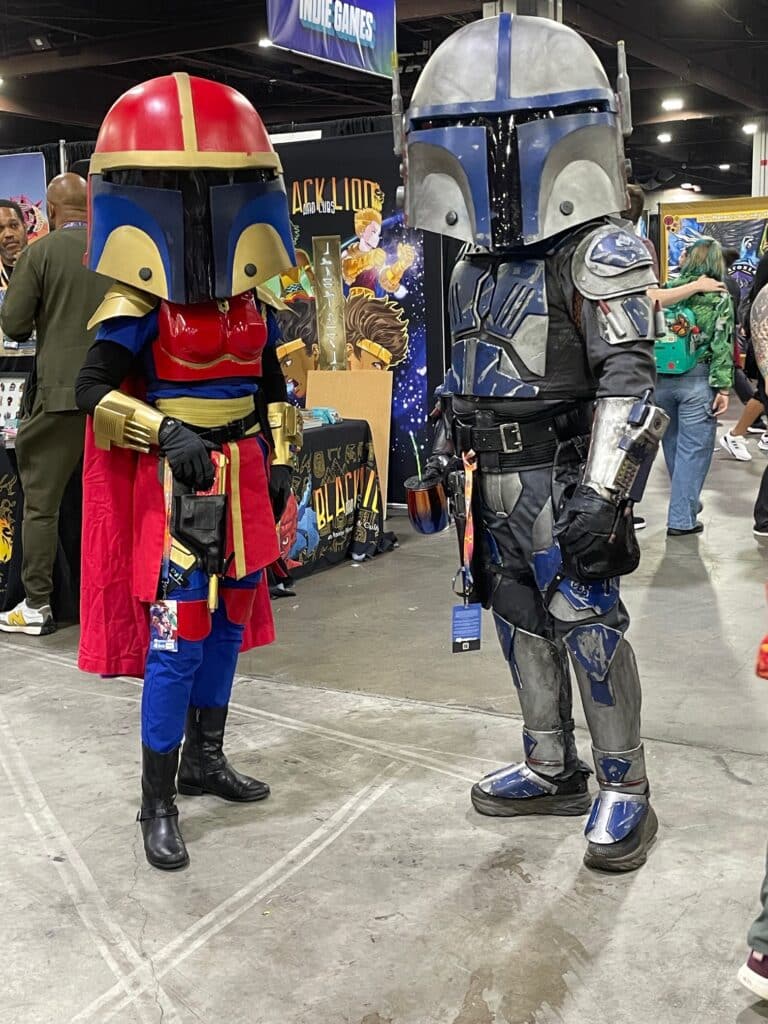
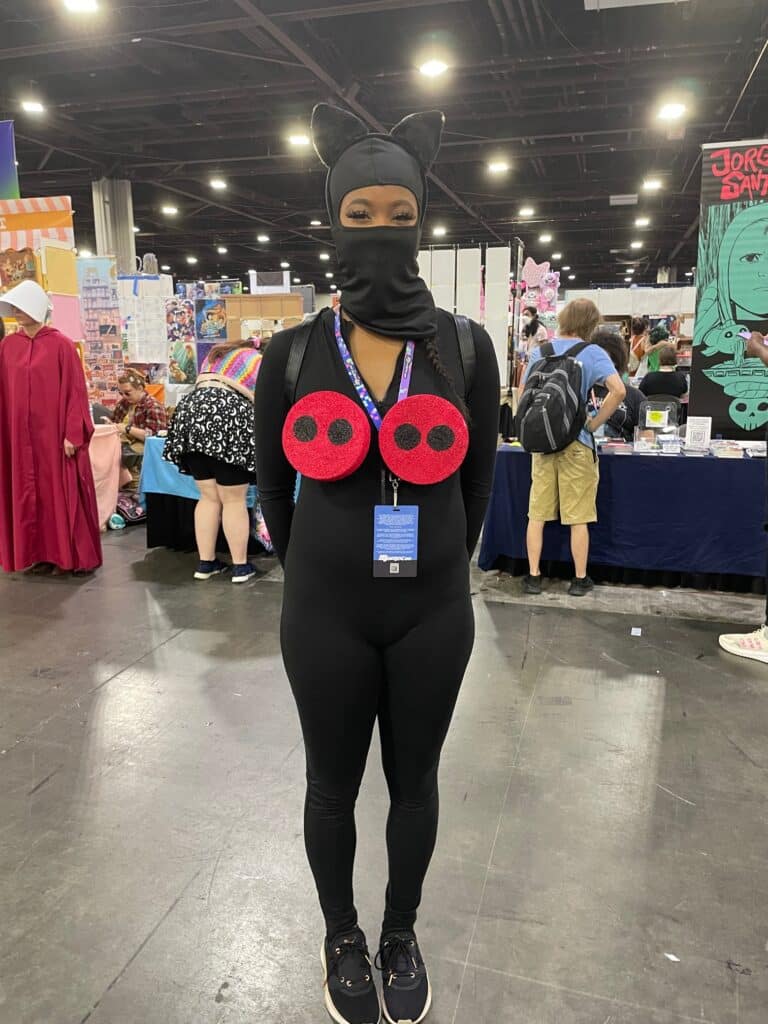
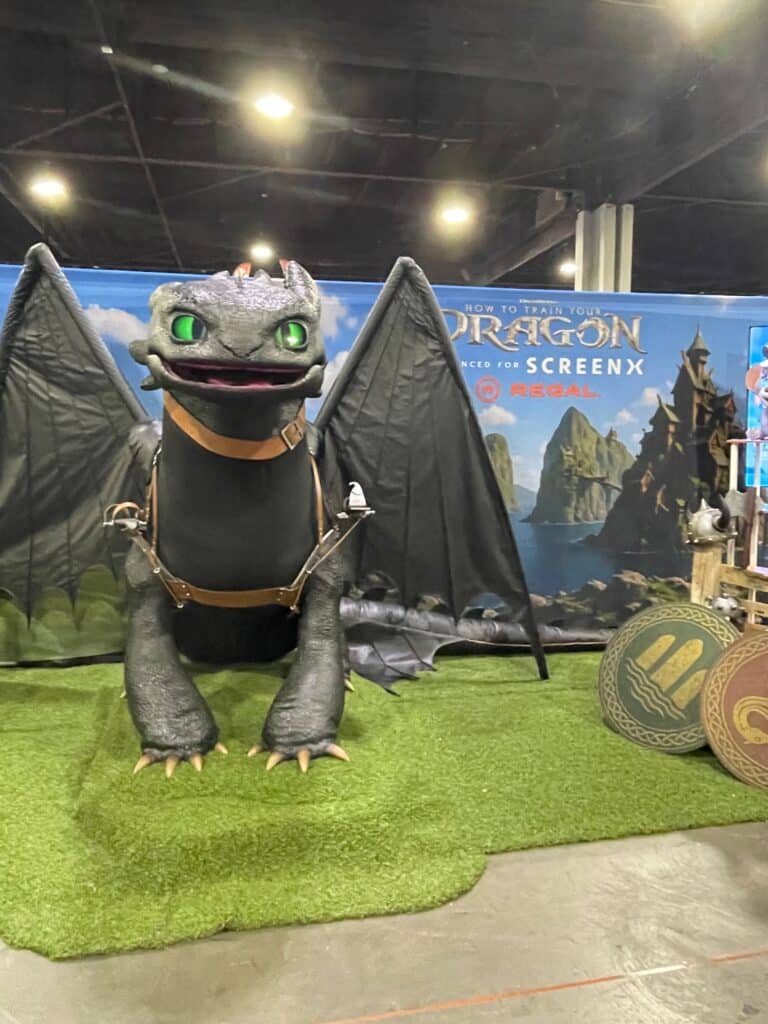
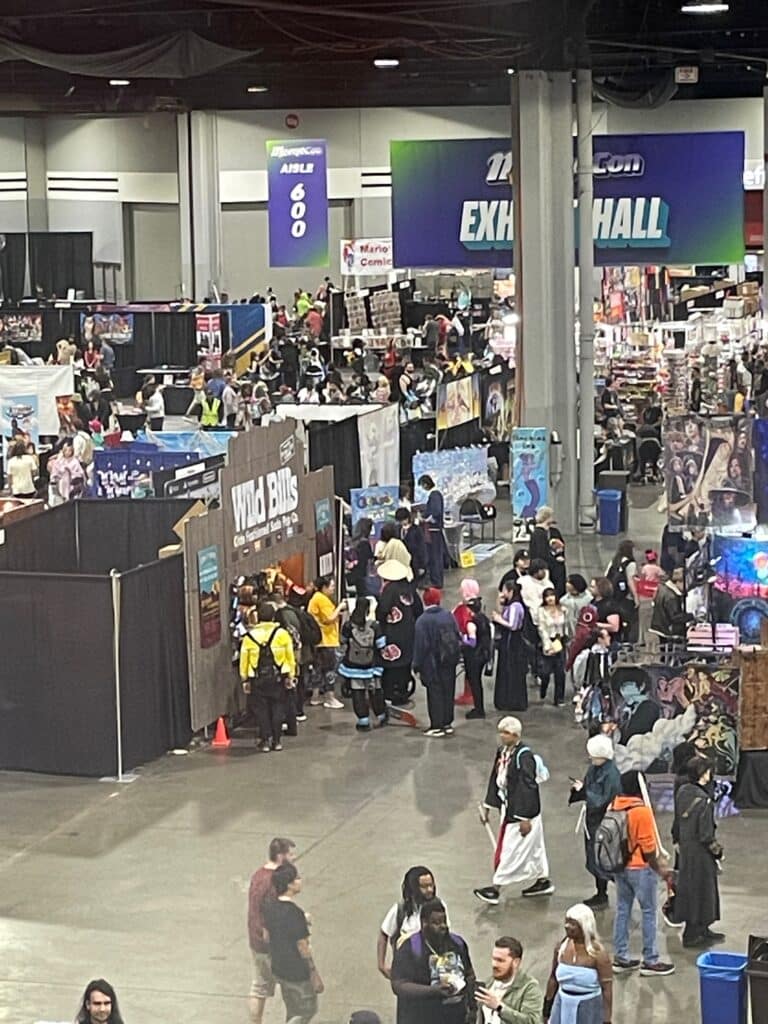
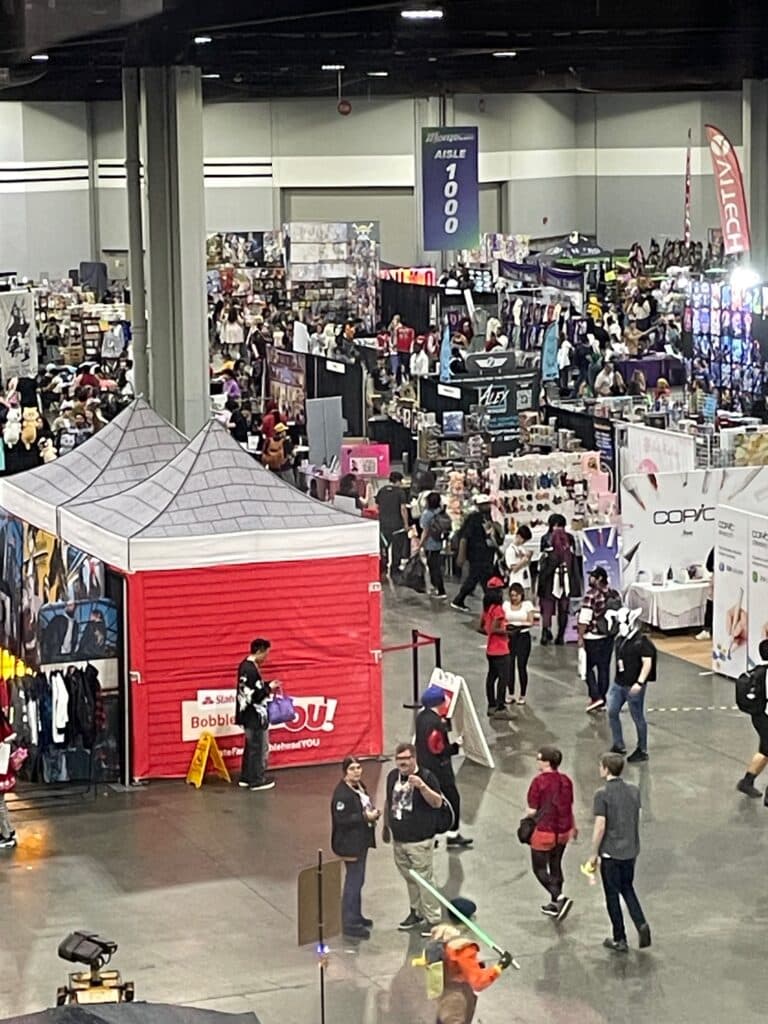
Workshops on everything from miniature painting and D&D to Gunpla modeling, as well as live performances and a massive vendor area and fan car showcase rounded out the exciting weekend.
Though tired from a whirlwind weekend of geek culture camaraderie and large (but super friendly) crowds, we can’t wait to see what MomoCon has in store for 2026.
For more about MomoCon, visit momocon.com.
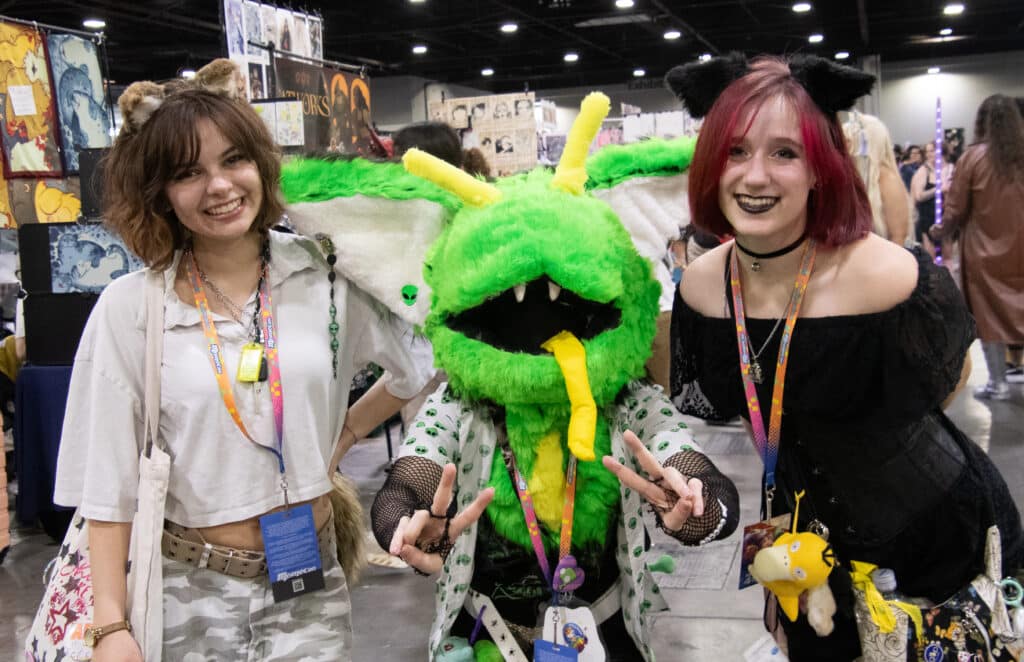
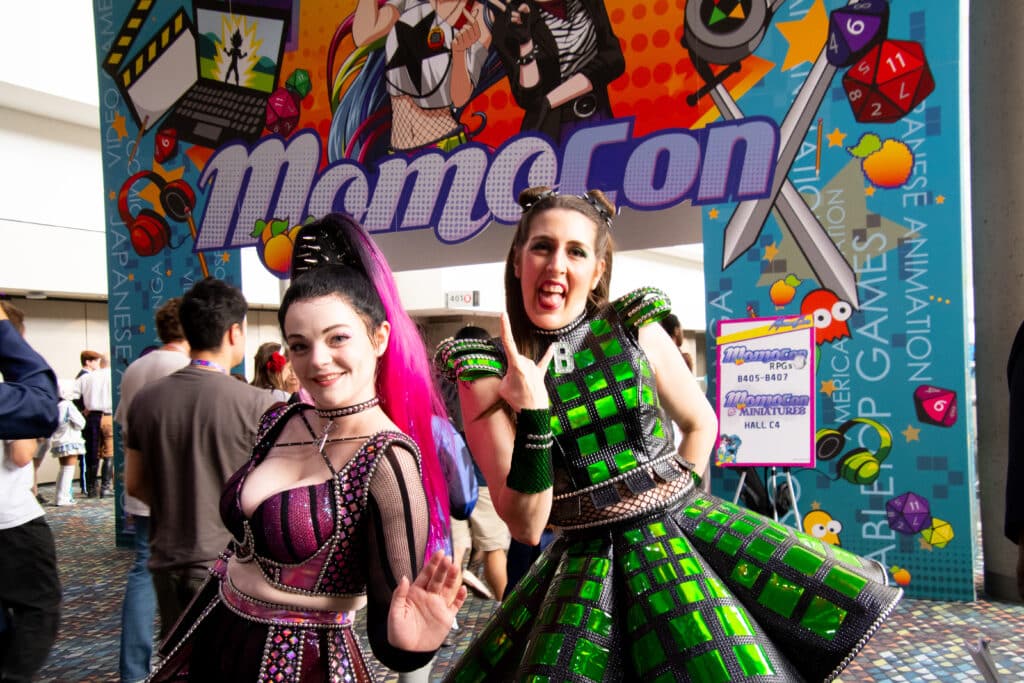


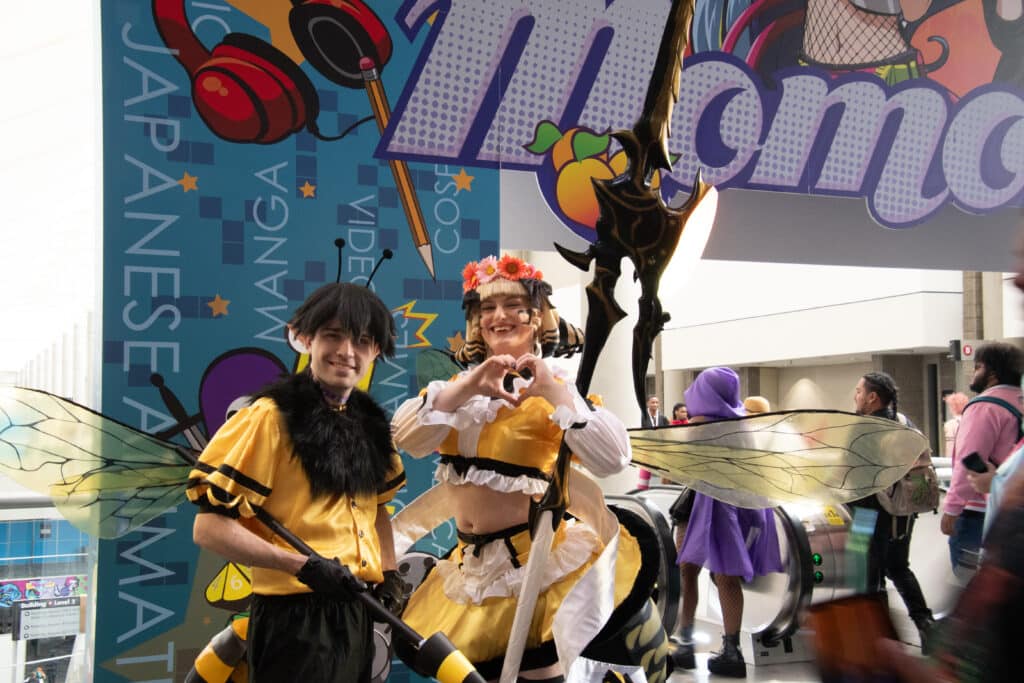
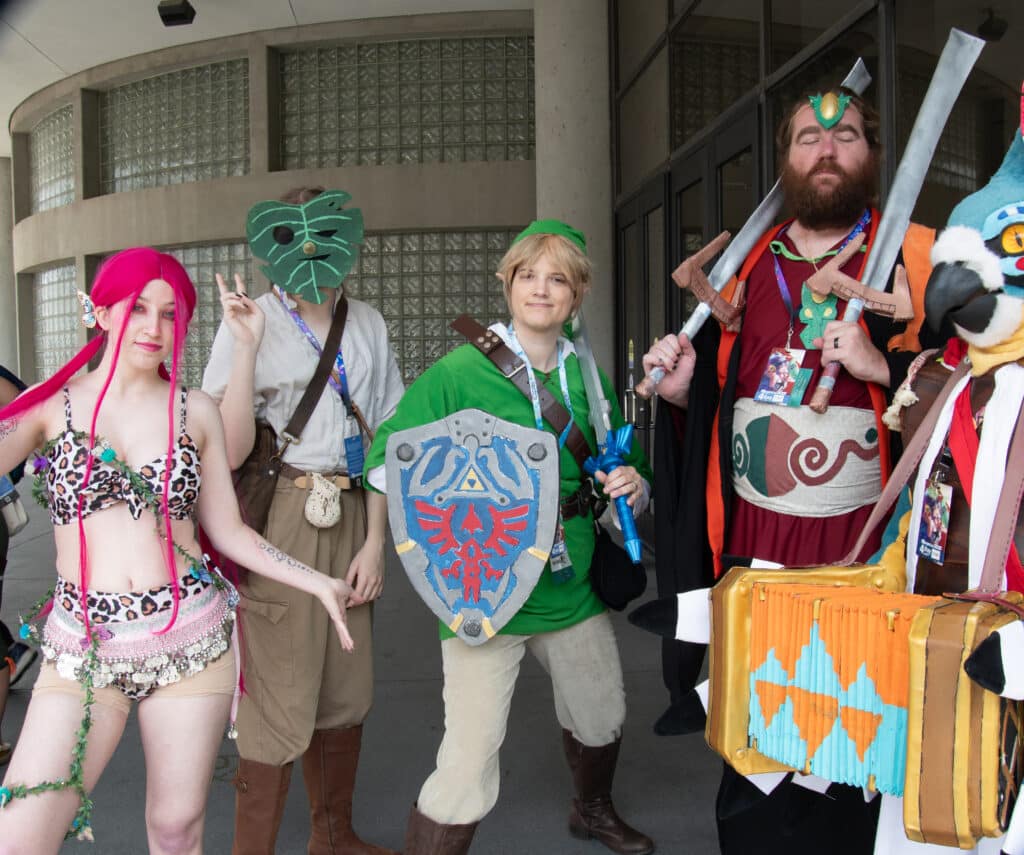
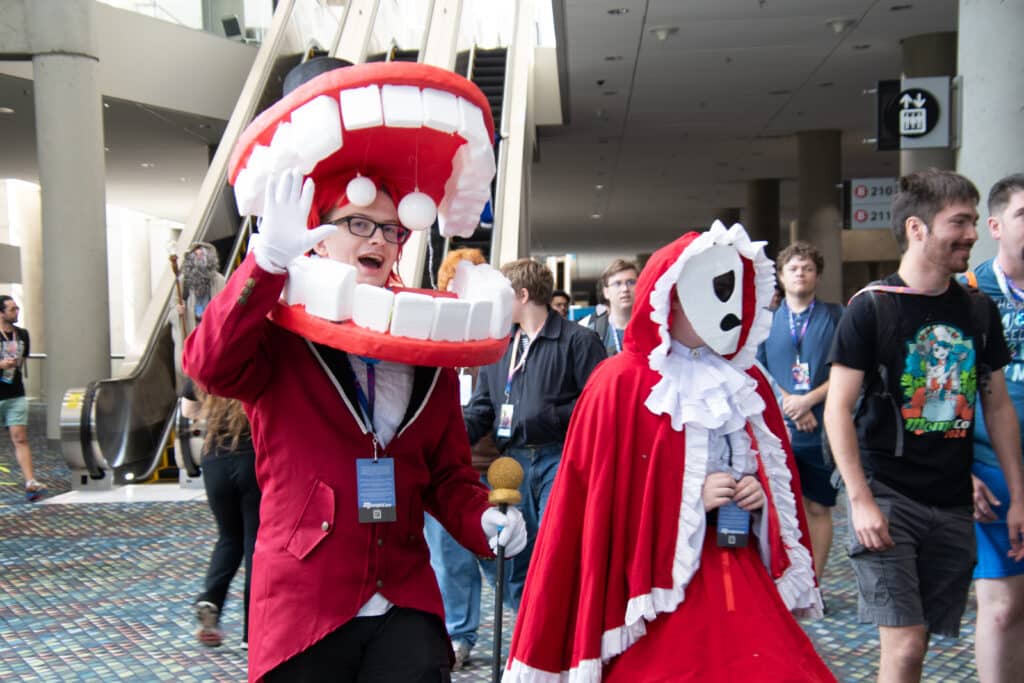
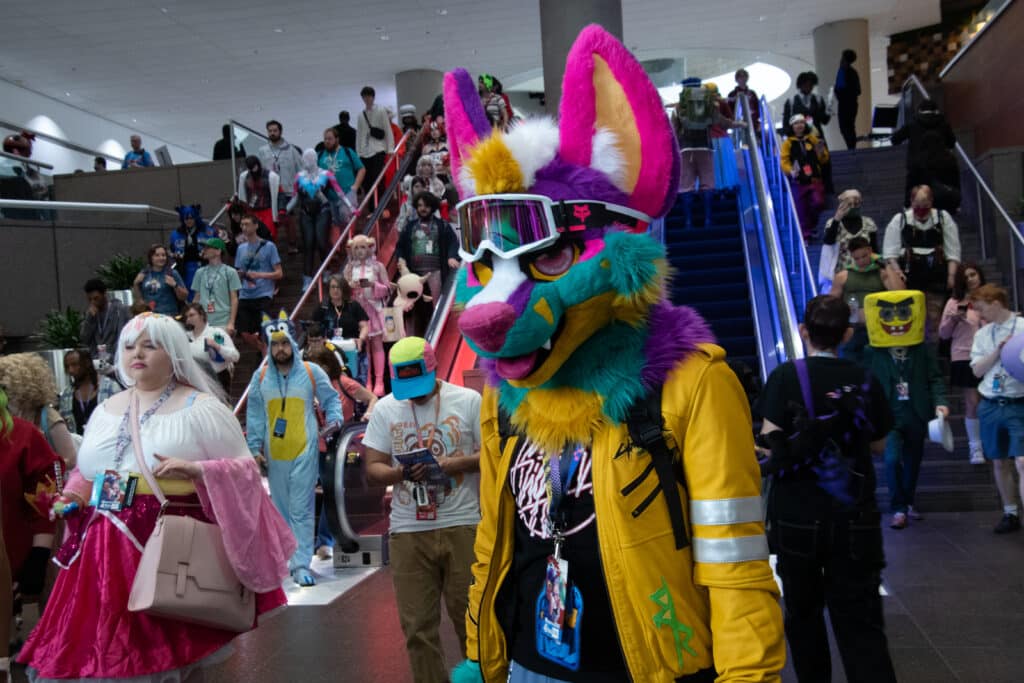
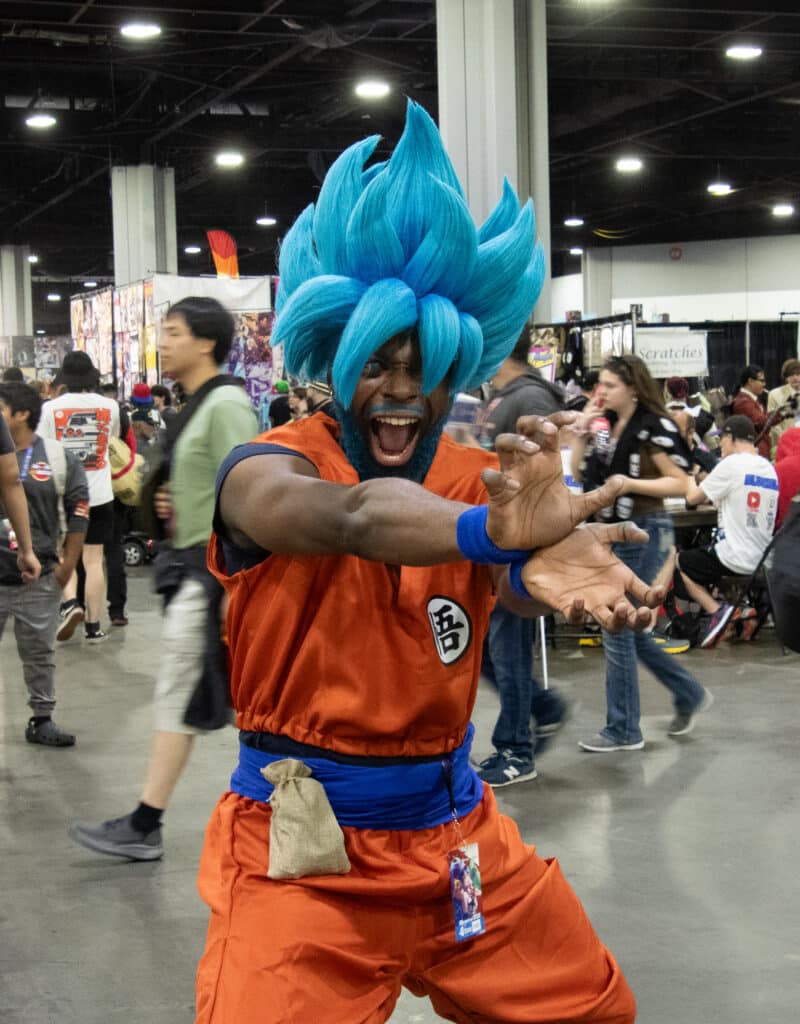
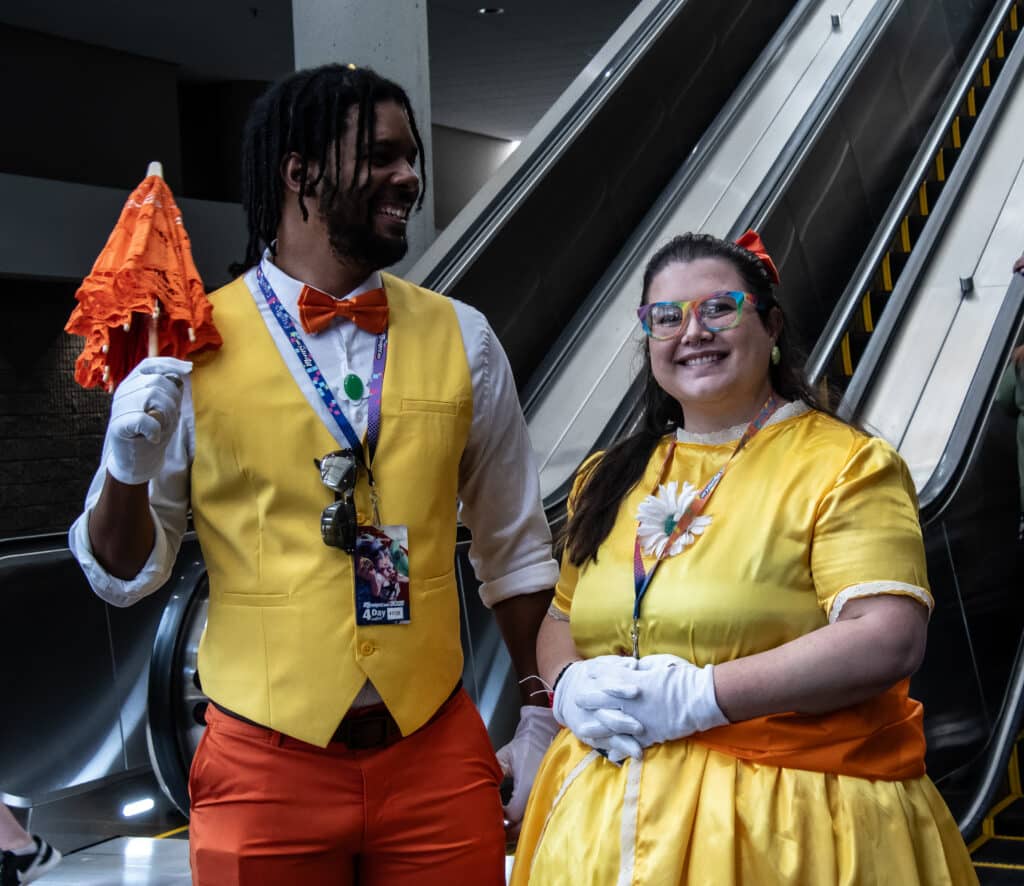
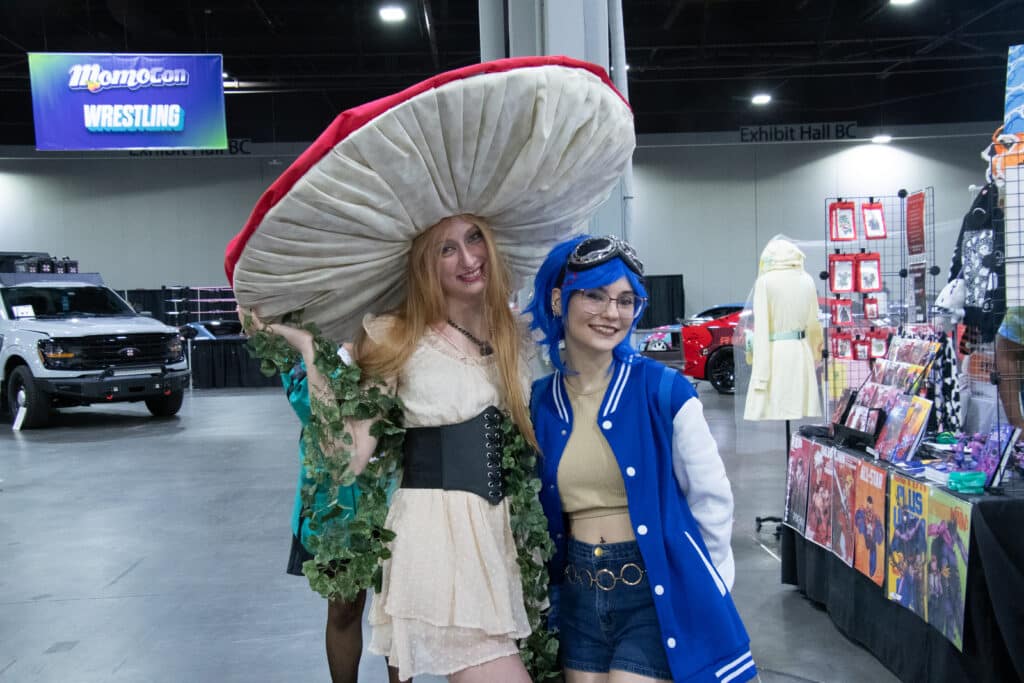
More moments from 2025; photos courtesy of MomoCon
Related
Read the Digital Edition
Subscribe
Keep Up With Peachtree Corners News
Join our mailing list to receive the latest news and updates from our team.
You have Successfully Subscribed!

“Geek Culture” Shines at 2025 MomoCon

Vox-Pop-Uli Launches RED Initiative for Veterans’ Support

From Zero to Accredited: Dunwoody’s Billy Grogan on Starting a City Police Department [Podcast]

City Collaborates with DNR for Deer Overpopulation Solutions

More Than Badges: Why Community Culture Drives Great Policing [Podcast]

The PCBA Awards $500 to Light Up The Corners at After-Hours Event

The City and PCBA Welcome Ride Lounge with Ribbon Cutting Ceremony

Peachtree Corners Festival Awards Debbie Mason Drama Scholarship for 2025

Eric Christ: Upcoming Elections Update

The Forum Welcomes [solidcore] with June 7 Grand Opening

More Than Badges: Why Community Culture Drives Great Policing [Podcast]

The City and PCBA Welcome Ride Lounge with Ribbon Cutting Ceremony

From Zero to Accredited: Dunwoody’s Billy Grogan on Starting a City Police Department [Podcast]

Mustache The Band Set to Play the VoxStage on June 14

City Collaborates with DNR for Deer Overpopulation Solutions

Peachtree Corners Festival Awards Debbie Mason Drama Scholarship for 2025

Light up the Corners [Video]

Capitalist Sage: Business Leadership in Your Community [Podcast]

Cliff Bramble: A Culinary Adventure through Italy

Top 10 Brunch Places in Gwinnett County

A Hunger for Hospitality

THE CORNERS EPISODE 3 – BLAXICAN PART 1

Top 10 Indoor Things To Do This Winter

The ED Hour: What it takes to Remove Barriers from Education

Peachtree Corners Life
Topics and Categories
Trending
-
Podcast4 days ago
More Than Badges: Why Community Culture Drives Great Policing [Podcast]
-
Business5 days ago
The City and PCBA Welcome Ride Lounge with Ribbon Cutting Ceremony
-
Fitness3 days ago
The Forum Welcomes [solidcore] with June 7 Grand Opening
-
Elections and Politics3 days ago
Eric Christ: Upcoming Elections Update





